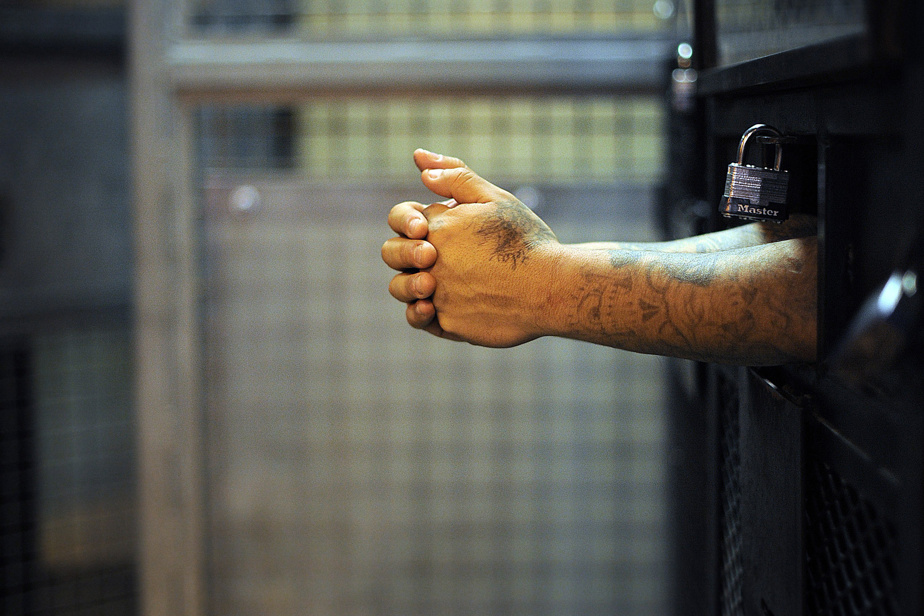Hundreds of thousands of American prisoners are forced to work in “humiliating conditions” that would cause a scandal in any other environment, the authors of a new report condemning the “exploitation” of US prisoners have denounced.
Mark Tebodeau Journalism
The American Civil Liberties Union (ACLU) notes in a comprehensive study produced by researchers from the University of Chicago that the federal government and many states take advantage of a constitutional exemption to abuse this “captive workforce.” ”
13e The amendment introduced in 1865 to outlaw slavery and involuntary servitude, provides an exemption from “punishing” criminals, thus depriving them of effective legal protection.
Most people are not particularly shocked by the idea of detainees being forced to work. “But they are unaware of the conditions associated with it,” Marianna Olizola, a co-author on the study, says in an interview.
little income
Inmates who work in federal or state prisons earn very little money overall, and their hourly wages rarely exceed $1—even for precarious jobs like those of California prisoners mobilized to fight wildfires.
Based in part on a series of requests for access to information and a long series of interviews, the authors calculated that the average hourly wage was 13 cents an hour.
They identified seven countries that simply do not pay any prisoner who is forced to work.
Those who earn little money also have to contend with the fact that prisons take up to 80% of their income to cover costs of all kinds.
Nearly 70% of those who worked in custody said they did not earn enough money to cover the cost of essential items, such as hygiene products, medicines or warm clothes mandated by prisons.
The report notes that families experiencing loss of income resulting from someone’s imprisonment are forced to step in to support them financially, often through debt.
hypocrisy
While inmates earn little, they produce $2 billion worth of goods and services annually, and provide $9 billion in maintenance services to the institutions that supervise them.
Nearly 80% of the inmates who work are in charge of maintenance. Another 10% is for public works, such as maintenance of roads or gardens. A small portion is employed by private companies that pay for the prisons.
“The financial benefits for governments are enormous,” notes Ms.I Olizola.
The study’s co-author finds it “hypocritical” to see the United States condemn the use of forced labor in foreign countries while profiting from abusive practices within the US prison system.
Nearly two-thirds of the inmates surveyed indicated that they worked in the prison, which represents about 800,000 people nationwide.
Among those who worked, at least 75% indicated that they risked penalties in case of refusal. Solitary confinement and loss of family visitation rights are some of the penalties mentioned.
Jobs at risk
The detainees also allege that they were forced to work in high-risk jobs without proper training or equipment.
The study authors note that many of them encountered such a scenario during the COVID-19 pandemic by assigning them tasks where they would likely have been exposed to the virus.
Prisoners were instructed to produce hand sanitizer, masks, medical suits and face shields which they were then forbidden to use for their own protection.
Excerpt from the American Civil Liberties Union study
Often, work programs are justified by the fact that they allow prisoners to develop skills that will facilitate their social reintegration.
“But the majority offer maintenance activities that do not provide any particular skills even if that is what prisoners would like to have,” notes the lady.I Olizola.
The report’s authors note that there is an urgent need to ensure that prisoners work on a voluntary basis and are not threatened if they refuse to do so.
They are calling for a revision of the Constitution and enabling prisoners to receive the same legal protections as all American workers, rather than leaving them defenseless against state institutions that act as “jailers and chiefs.”




